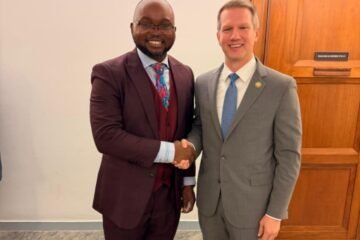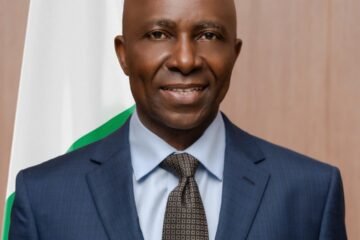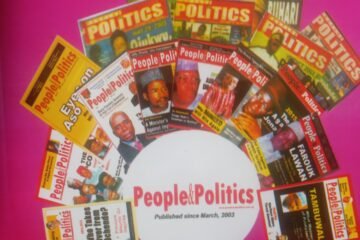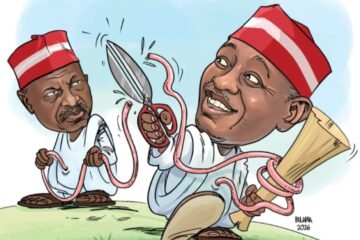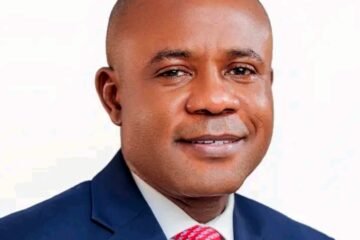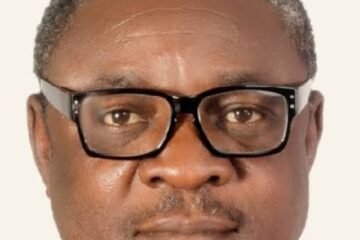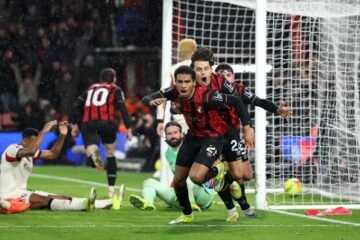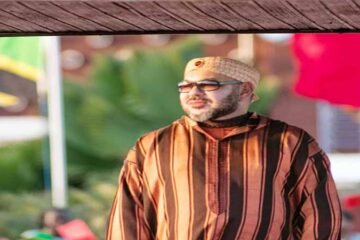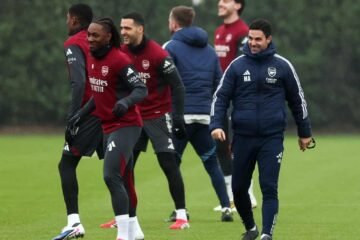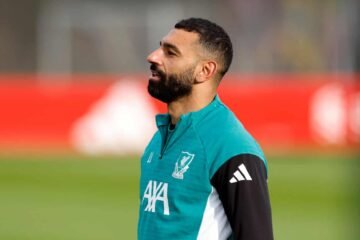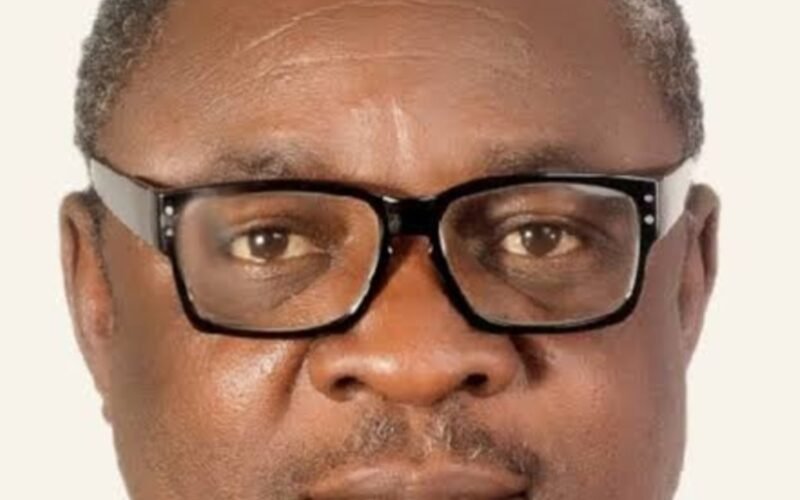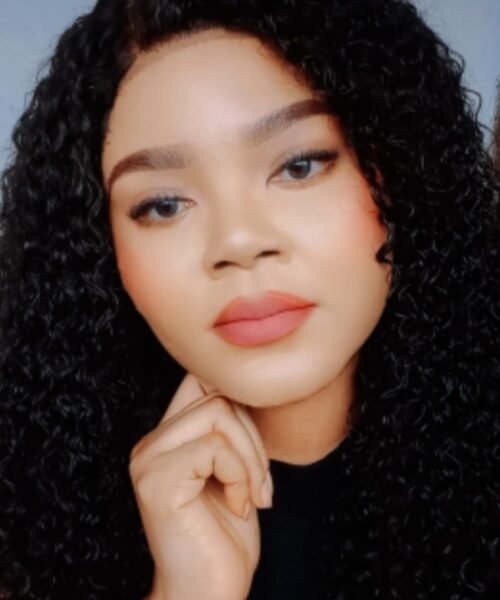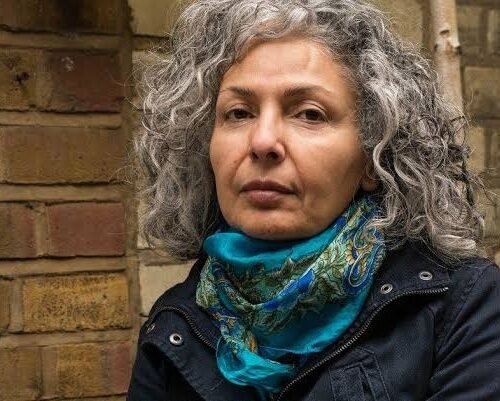By SHEDDY OZOENE
The formation of a coalition of opposition elements in Nigeria has sparked off a wave of political activities as the general elections of 2027 draw closer. Led by former Vice President Atiku Abubakar, former Labour Party (LP) presidential candidate Peter Obi, former Kaduna State governor Nasir el-Rufai and former Senate President David Mark, the coalition is built around the African Democratic Congress (ADC), which has emerged as a potential vehicle for a unified opposition platform.
The key drivers of the coalition have not minced words about what their mission is: to defeat the ruling All Progressives Congress (APC) in the 2027 elections and unseat President Bola Tinubu. Expectations are high indeed, and just two years into Tinubu’s first tenure, the battle lines have already been drawn against his second.
Tinubu’s 2-year tenure has engendered rising economic hardship, public discontent and declining faith in the APC. If the public outcry against the administration’s programs is anything to go by, then the Coalition’s mission will likely enjoy widespread support. But there is already a concerning worry: despite its promise, the Coalition is already facing existential threats on many fronts, chief among them being the conflicting presidential ambitions of two key figures, Atiku Abubakar and Peter Obi.
While both men are formidable politicians with significant followings, their personal ambitions, underlined by the sound bites from their camps, do not give room for any cheer. It raises the question: Will this coalition fulfill destiny or is it another political ego trip?
Before even the whistle is blown, the presidential ambitions of both Obi and Atiku have taken a discomforting centre-stage. Atiku supporters have indicated that his resolve to contest the forthcoming presidential election is unwavering, despite an unenviable history of past rejections and the widely-held belief that the country’s zoning arrangement favours the South for another term of 4 years. For a man reputed for his deft political maneuvers which most of the time overwhelm opponents at party’s primaries, Atiku’s ‘threat’ cannot be toyed with. The old fox may not have won the ultimate price but he sure has mastered the trick in winning party primaries.
On the other hand, Obi’s allies have famously said he would opt out of the ADC Coalition altogether if he is denied the party’s 2027 presidential ticket. Coming from Yunusa Tanko, one of Obi’s strongest allies, the interpretation in simple terms is that Obi may not be fully committed to swimming or sinking in the ADC coalition.
Like Fela would say, there is already a stalemate.
Nigeria’s politics is heavily influenced by ethno-regional balancing, and both Atiku and Obi are prominent symbols of two different interests. The former is seen as a representative of the political elite with a loyal base in the North and among older voters, while the latter has become the face of South-East’s political resurgence who has captured the imagination of young Nigerians, especially across states in the South. These differences notwithstanding, they appeal to a somewhat overlapping base of Nigerians who are disillusioned with the APC and Tinubu. The result is a competition for the same space within the opposition ecosystem.
That’s where the similarity ends. Obi’s supporters view Atiku as part of Nigeria’s political problem—an old guard resistant to real change and unwilling to support others—while Atiku’s backers see Obi’s populism as naive and lacking in real political structure. Each part sees the other as the reason they fell short in 2023, allowing Bola Tinubu to snatch a controversial victory with less than 40% of the vote.
The 2023 results shows that Tinubu polled 8,794,726, a figure which, theoretically, could have been surpassed by a joint Atiku-Obi ticket. Both candidates scored 6,984,520 and 6,101,533 votes, respecrively.
Rather than learning from that strategic failure, early signs indicate that both men are still interested in squaring up again, likely with a carry-over of those old grudges. This is something the ruling party will likely exploit again. The inability to reconcile their ambitions could stall consensus-building within the coalition, which is critical to defeating a well-oiled APC machine in 2027. More importantly, it would signal to supporters that the coalition cannot resolve even the most basic strategic question: Who leads?
In my interactions with prominent leaders of the Coalition of recent, the issue of resolving this contradiction has always arisen. The matter invariably boils down to one question whether to zone or not to zone. The answer usually comes down to the usual refrain among politicians: when we get to the bridge, we will cross it.
While it is too early in the day to expect the party to take a position now but it will sooner than later, arrive at the inevitable point. Heads or tails, the task of crossing the zoning bridge comes with the risk of displeasing – and probably losing – a large chunk of its followers. But it is inescapable.
The unwillingness of those two major players to subsume their personal ambitions for a larger, collective cause is a sign of troubles to come, and the ADC may find itself constantly managing internal contradictions that could explode into open conflict when candidate selection begins.
Again, should these narratives be the overriding issue in a coalition still trying to consolidate? Yes, especially for Obi whose ‘poor’ performance in 2023 was partly blamed on inadequate preparation after his last minute decision to defect to the LP. Waiting for a late decision in the ADC that is likely not to favour him, would be costly a second time.
The possible candidature of Abubakar Atiku, on the other hand, has greatly unsettled many leaders of the Coalition who may be thinking of alternatives already. While another leader of the Coalition, Rotimi Amaechi argues that it will be against the spirit of the power sharing principle between the North and South of the country, a matter that once brought him at odds against President Goodluck Jonathan in 2014, it is even more so for Nasir el-Rufai. The former Kaduna governor was in the forefront for a Tinubu candidature in 2023, against former Senate President Ahmed Lawan from Yobe State, based on the same understanding. Both men’s principle are being tested with the possibility that Atiku would run without allowing the South conclude its 8 years after President Muhammadu Buhari.
It’s still early days in the life of the ADC coalition, but many nurse the fear that it risks going the way of many previous Nigerian opposition alliances. The handwriting is on the wall: the lack of ideological cohesion makes it unattractive for a broad spectrum of potential supporters, particularly those who are hungry for issue-based politics. At a time they should focus on systemic reform and good governance, the ADC Coalition is fast becoming another vehicle for personality-driven politics and internecine fights about zoning, candidate selection, and party control.
For it to thrive, it must establish a shared ideological framework that its leaders should fit into—something that transcends individual aspirations and regional considerations that are already playing out. I hope it does not end up another promising experiment undone by ego, ethnicity, and ambition.

